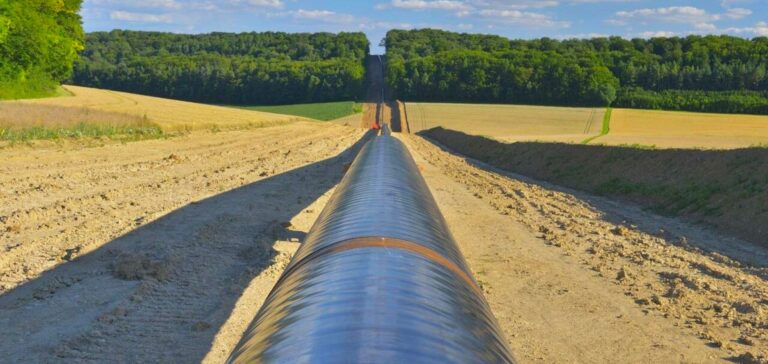In February, TotalEnergies announced a $10 billion investment agreement with Uganda, Tanzania and China’s CNOOC, including the construction of a 1,400-kilometer pipeline (the East African Crude Oil Pipeline – EACOP) linking the Lake Albert oilfields in western Uganda to the Tanzanian coast.
“The EACOP will be the longest heated pipeline in the world if it sees the light of day; heated to 50°C all the way through (…) it will carry about 216,000 barrels of oil per day, which will be exported to the international market”
details the report by Friends of the Earth and Survival.1
“Including emissions from the transportation, refining and use of this oil, this will result in the emission of up to 34 million tons of CO2 per year into the atmosphere, far more than the combined greenhouse gas emissions of Uganda and Tanzania,” the groups say.
In Tanzania, a country known for its biodiversity, the pipeline will run 1,147 kilometers to the Indian Ocean at the port of Tanga, according to the report. The pipeline “will impact the land of nearly 62,000 people and threaten more than 2,000 square kilometers of nature reserves; it will run for more than 400 kilometers through the Lake Victoria basin, one of the main sources of the Nile and the second largest freshwater lake in the world. In the area of the port of Tanga, Total plans to build oil export infrastructures off the coast.
“As the Indian Ocean is highly prone to tsunami and cyclone risks, and this is increasing with global warming, the risks of a major oil accident, irreparably affecting the very rich biodiversity of the marine protected areas of this area, are extremely high,” the report says.
“Titanic construction site”
On September 15, the European Parliament criticized TotalEnergies’ project in Uganda and Tanzania, expressing concern about “human rights violations” committed against opponents of the project and asking the group to study “the feasibility of an alternative route that would better preserve the protected and sensitive ecosystems and water resources of Uganda and Tanzania.
Reacting to the report on Wednesday, TotalEnergies said that the project “represents a major development challenge for Uganda and Tanzania” and that it would “do everything in its power to make it an exemplary project in terms of transparency, shared prosperity, economic and social progress, sustainable development, environmental awareness and respect for human rights.
Friends of the Earth and Survival point out that while field investigations and reporting have focused on Uganda, this report is based on a groundbreaking investigation in Tanzania” where conditions were “very difficult” due to a “heavy surveillance system put in place by the authorities.
“The same violations of the rights of the affected populations as in Uganda have been observed,” they denounce.
In particular, the associations point to “land that was transferred under duress and at an unfair price by the communities to the EACOP consortium headed by Total” with an “undervaluation of the price of agricultural land” by the project’s promoters, and “an interminable wait (3 to 4 years for a majority of the people affected) for compensation” with “dramatic consequences for the populations”, a situation for which “the Total company has responsibilities and has not implemented adequate measures to stop these violations”.
“The human, climate and environmental costs of Total’s mega oil project are simply unacceptable,” the report concludes. In a statement, the #StopEacop coalition called for the “immediate release” of several Ugandan students arrested Tuesday by police during a protest in Kampala against the EACOP project.
For Omar Elmawi, coordinator of the #StopEacop coalition, “the Ugandan government must first protect the rights of its citizens and not respond to corporate greed. “It is sad that in this day and age, innocent citizens are being arrested for simply exercising their right to express themselves (…) about the EACOP project and the damage it will cause to people, nature and the climate”. On Monday, in an article published in the newspaper La Croix, 400 young Catholics, “concerned about the future of the planet”, asked the French bishops to denounce the EACOP project, “a titanic construction site which, in many respects”, seems to them “incompatible with the search for the common good”.






















